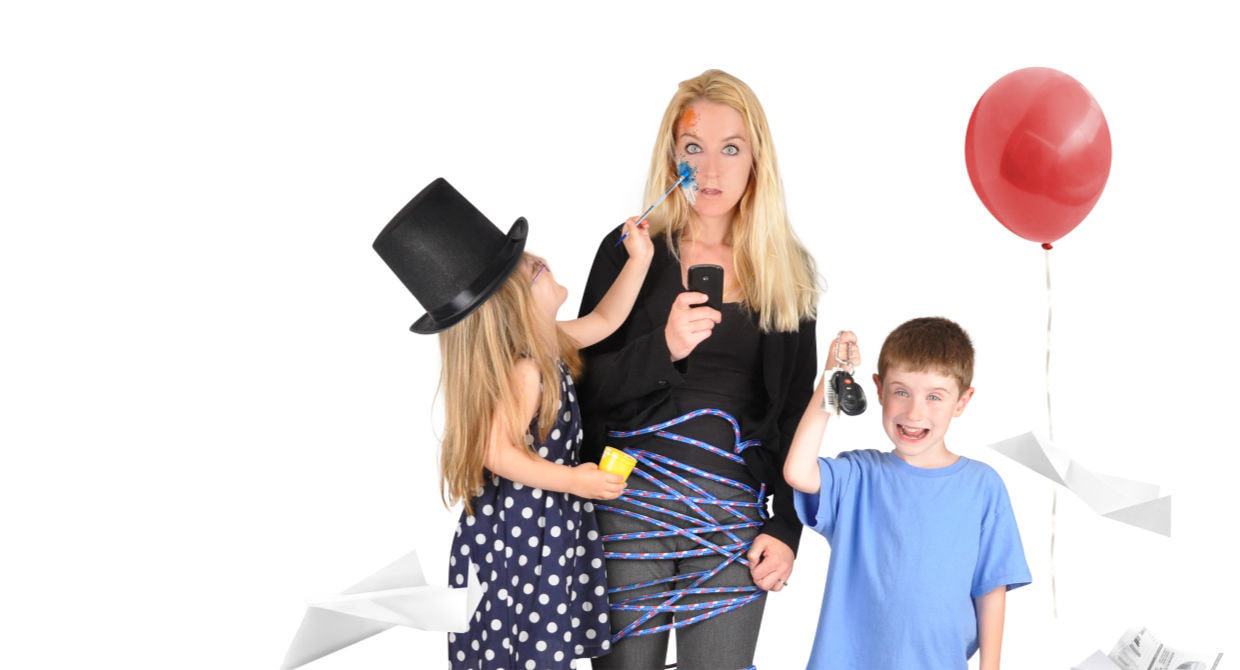Parents on Strike: Making a Point to Raise Responsible, Self-Reliant Kids

Imagine six days of freedom from being “Mom the Maid”: no cleaning up after kids, doing their dishes, or constantly putting away their toys and school bags.
Jessica Stilwell, mother of three, made headlines a while back when she got just that – by going on strike.
And although in less than a week, her kitchen sink could easily be mistaken for a science experiment and her entire house was now artfully decorated in dirty clothes, she had also taught her kids a very valuable life lesson–and offered hope to parents everywhere who are fed up with their kids not lifting a finger.
Truth be told, we do our kids a huge disservice when we do things for them that they are perfectly capable of doing themselves.
We send the message they aren’t capable–so why should they try? Further, we sow the seeds of entitlement with kids who expect to be pampered and indulged–not exactly what your child’s future spouse wants, am I right?!
The beauty of Positive Parenting is it encourages parents to be both compassionate and firm. By doing this, parents hold children to realistic standards in a loving and empathetic way.
The good news is you don’t have to go on strike to teach your child accountability–that’s what Positive Parenting is all about. So before you and the neighborhood moms form a picket line, try these battle-tested strategies instead.
4 Strategies to Raise Responsible Kids
1. Decide What You Will (and Won’t) Do
Determine some family rules about how much your kids are responsible for contributing, while remembering you can’t control your children–only your own actions.
For example, you could decide you will do laundry, but that you won’t be begging them all week to bring you their dirty clothes. You can offer to pack school lunches each day, but put your foot down on searching the house for missing lunchboxes or scrubbing out the mushy remains of Friday’s banana. You’ll cook dinner, but won’t be responsible for making sure that everyone’s dishes end up in the dishwasher.
So when laundry day arrives and your teen’s favorite jeans aren’t in the hamper, don’t cave. Simply let her know you’ll be happy to wash them next week as long as they are in the hamper. Otherwise, she can wash them on her own.
2. Put Your Kids “On Notice”
This is the step Jessica missed, and it left her with a disaster zone that took two days for her kids to clean up.
Before you implement your new family rules, make sure those rules are crystal clear to your kids. Explain the rules and have your kids repeat back to you the consequences they’ll face if they choose to shirk their responsibilities.
Set a family rule that on Wednesdays and Saturdays, you will wash everything that’s in the laundry room – but nothing else. You’ll pack lunches if clean, empty lunchboxes are on the shelf in the pantry, and cook dinner if the countertop is clear, clean, and work-ready.
3. Use Logical Consequences
Logical consequences are those that are directly related to your family rule. So if your child refuses to pick up his toys, don’t send him to “time out“–there’s no direct correlation.
Instead, let your kids know that any toys that remain on the floor will be placed in an off-limits box for the next three days. If your son leaves his lunchbox in the backpack all weekend, then he’ll be responsible for packing his own lunch. And, if mom can’t make dinner because the counter is covered with everyone’s dishes, then the kids can be in charge of cooking–or they can chip in for healthy take-out.
4. Be the Role Model
At the end of Stilwell’s experiment, she was able to point out to her children that every bit of filth in the house was something left behind by the kids–Mom and Dad had kept cleaning up after themselves. Teach your kids the same lesson by following every family rule you set. Your kids will notice if you follow the rules, and especially if you don’t.
Final Thoughts
The key to all these strategies? Follow through, each and every time.
The best and fastest way to change behavior is to stop intervening and let your kids experience the consequences of their choices. A few days without their favorite Batman action figures or an hour in dirty gym clothes won’t affect their well-being, but it will get them to clean up after themselves!
I know parenting is tough. In my 15+ years as a parenting educator, I’ve found the difference between overwhelmed parents and confident parents is simply knowledge.
When parents are equipped with tools that ACTUALLY work, their lives are completely transformed.
If you’d like to learn more tools that ACTUALLY work, I’d love for you to JOIN ME FOR A FREE ONLINE CLASS.
I’ll teach you how to get your kids to listen–no nagging, reminding, or yelling required!
As always, I’m wishing you all the best in your parenting journey!
What You Should Do Next:
1. Get Quick Actionable TIPS delivered to your inbox
Sign up for my newsletter for parenting tips to help you create a happier home and become the parent you always wanted to be. Plus, when you subscribe, I'll also send you a copy of our strategy-packed guide 10 Tips for Better Behavior – Starting NOW!
2. Unlock the secrets to easier parenting in my FREE CLASS
Register for my free class called How to Get Kids to Listen, Without Nagging, Yelling or Losing Control. Classes run several times per week to accommodate your busy schedule.
3. Transform your family with the 7-Step Parenting Success System® Course
Join the hundreds of thousands of parents who have transformed their families with the 7-Step Parenting Success System® Course. Learn the tools you need to raise happy, respectful, responsible kids and create the family life you always dreamed of having.
About the Author






